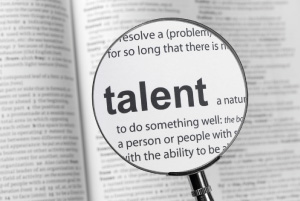 Most of us were brought up to recognise talent and celebrate strengths.
Most of us were brought up to recognise talent and celebrate strengths.
As a society, we admire those who excel in their area – the people who lead their field, whether in sport, business or the arts.
So naturally, when we’re thinking about our careers, we tend to look to the things we do well.
Which makes sense, right?
Well, not all the time, no.
As a career coach, I fully believe in playing to your strengths – with some key caveats.
Because time and time again, I’ve seen the unhappy outcomes of career choices based purely on what someone could do well; what they were measurably good at. People unhappy in their jobs, doing ‘meaningless’ work that leaves them cold… wondering why they’re not fulfilled, and feeling stuck and lost.
Counter-intuitive as it sounds, when it comes to careers, a narrow focus on your recognised talents can trip you up.
If you’re good at what you do but not happy doing it, here’s 3 common career pitfalls to check in with…
1. Career Pitfall #1: Confusing aptitude with enjoyment
Every day, I work with clients who are highly successful in their careers; people who are really good at what they do. They’re known, recognised and lauded for their abilities… and often highly admired by others. There’s just one problem: they hate their jobs.
Why? Because they’re doing something they’re good at, not something they enjoy.
So often, we forget that aptitude ? enjoyment.
Most of us pursue our ‘good’ subjects in school, and then follow our grades to university. In an ideal world, good grades would always reflect interest and engagement – but in the real world, they don’t. I know this personally.
I was the ‘art’ person in my school year… therefore, destined for art college. But when I failed to get in, my response was relief. Despite being ‘good’, it was never my dream.
Life is not linear. Being good at something does not mean it motivates us, energises us or brings personal satisfaction – let alone joy. All the things, in my experience, that we most desire in our jobs. And all things we gain from following our own dreams, and aligning our work with our own personal values.
You can be good at many things – pursue those that intrigue and engage you.
2. Career Pitfall #2: Getting type-cast at work
Jobs and identity go hand-in-hand, and it doesn’t take long for you to be known for your talents, whatever they are. Once you prove your ability – once you’re known as a skilled or safe pair of hands – you’ll typically be given more and more of the same tasks.
And the longer that goes on, the more valuable your skills and experience become – both to your own employer, and to others.
If you’re not careful, before you know it, you’re the go-to person for something you didn’t pursue, don’t enjoy and don’t want.
That’s exactly what happened to me, working in HR. Having successfully dealt with industrial relations issues from early on in my career, managers soon learnt to call me with their people problems. And just like that, my good track record became my de facto specialty… just one I loathed, on every level.
Keep doing something well and you’ll get known for it – so choose carefully!
3. Career Pitfall #3: Playing it safe
Being good at something, even something we don’t like, comes with a dangerous hook: we’re good at it. We’re recognised for it, praised for it – and sought out for it. Succeeding is safe, and it feels good. Who doesn’t enjoy the glow of recognition?
The trap here? Habit… and ego.
The longer you succeed doing one thing, the more risky it can feel to try something else. Trying something new involves learning, and learning brings the possibility of failure. Catch 22: without learning, you’re going nowhere.
Ask yourself: if you’re still doing what you’re doing now, in a year… in 2 years… in 5… will you be happy? Fulfilled? Progressing?
Weigh up the costs of trading good now, for better later.
If your options are limited where you are – if you’re truly boxed in – you can still grow yourself. Be creative – join clubs, take classes, volunteer in a new area. Find ways outside of your current job, to develop new skills and strengths and start moving towards what you really want. Build your own path.
Don’t let ego or routine get in the way of your own happiness; life’s way too short.
Being good at what you do is important, yes… but if you want a great career, start with what interests and engages you first.
In my experience, people do their best work – and get their best results – when they truly care about what they’re doing. What about you?



